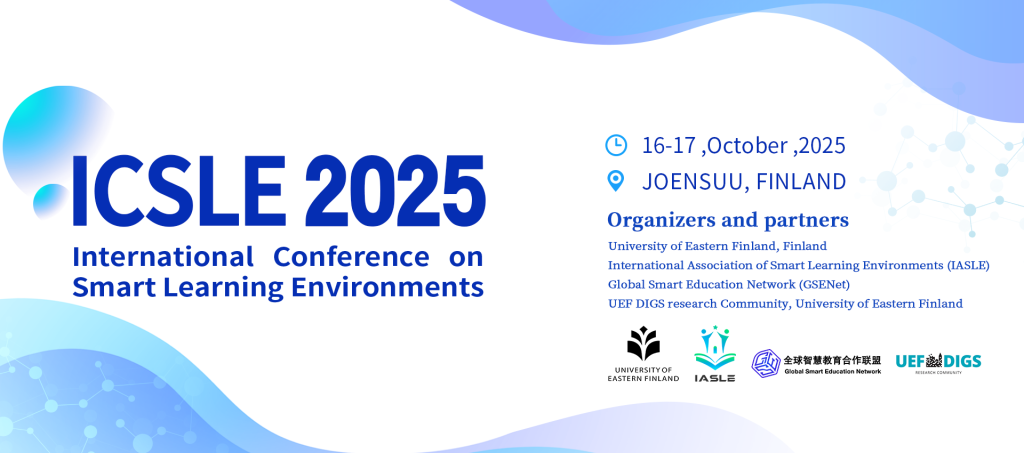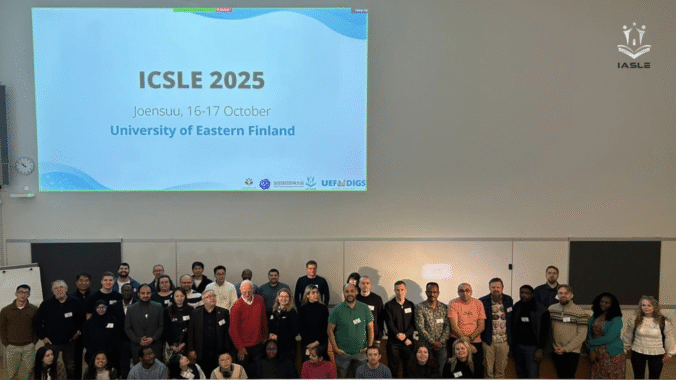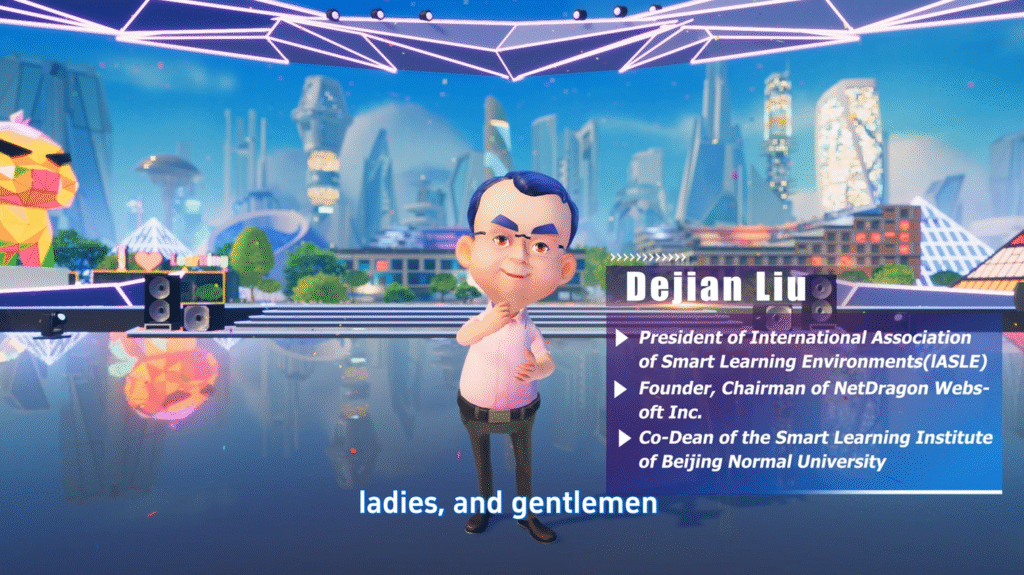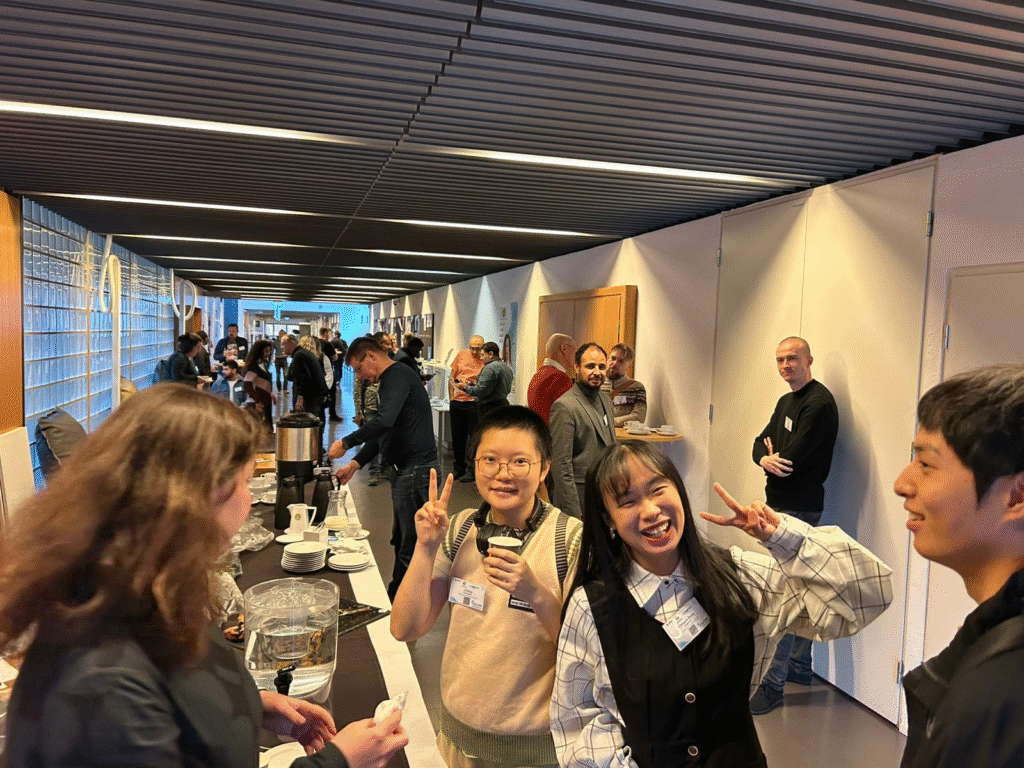The 9th International Conference on Smart Learning Environments (ICSLE 2025), co-hosted by the International Association for Smart Learning Environments (IASLE) and the University of Eastern Finland (UEF), successfully convened from October 16-17 in Joensuu, Finland. Under the theme “The Changing Landscapes of Smart Learning Environments: Pedagogy, AI, Collaborative Intelligence and Ethics,” the event drew interdisciplinary pioneers to confront education’s tech-infused evolution.

Opening Insights
Prof. Markku Tukiainen, Head of the School of Computing at the University of Eastern Finland and ICSLE 2025 Co-Chair, initiated the conference with a welcome address.
Prof. Dejian Liu, Co-Dean of Beijing Normal University’s Smart Learning Institute and ICSLE 2025 Co-Chair, inaugurated proceedings by contextualizing the urgent focus on AI’s pedagogical impact: “Our theme emerges directly from our observation of field shifts.”
University of Eastern Finland’s Vice Rector Prof. Laura Hirsto echoed this vision, emphasizing “UEF’s commitment to equitable innovation in technology-enhanced learning.”
Two landmark keynotes:
Prof. Peter Reimann (University of Sydney) dissected higher education’s purpose in the AI era, proposing “Apprenticeship Learning 2.0” — a model blending experiential training with AI mentoring.
Dr. Henriikka Vartiainen (UEF) challenged attendees to reimagine data sovereignty through her research on “Transformative AI Education and Learner Data Agency.”
Research Showcase
The conference attracted 51 papers, with 32 scholars presenting cutting-edge work across hybrid sessions. Notable contributions spanned the four thematic pillars:
1. Pedagogy
As technology reshapes educational foundations, Laura Hirsto’s team demonstrated teacher-controlled chatbots for scaffolding instructional design, while Nigeria’s Amos Sunday validated creativity assessment rubrics in resource-constrained STEM classrooms. Critically, Heikkinen et al.’s multi-national study captured intervention side-effects on learning metacognition.
2. AI
Reimagining human-machine knowledge transfer, Hongxin Yan engineered an automated high-order MCQ generator for real-time formative assessment, and Wang et al. pioneered multi-channel modeling of programming competency evolution.
3. Collaborative Intelligence
Forging synergistic learning ecosystems, Michael Adarkwah documented adult learners’ cognitive partnership with generative AI in discovery processes. Simultaneously, Finland’s Sini Kontkanen quantified pre-service teachers’ acceptance of collaborative AI tools, and Ramy Elmoazen designed RAG-enhanced tutor architectures for adaptive knowledge retrieval.
4. Ethic
Confronting algorithmic equity challenges, Mohammed Saqr exposed systematic gender portrayal biases in generative AI’s STEM narratives. Concurrently, Thomas Viik measured AI anxiety thresholds among educators, whereas Awais Baig prototyped barrier-free VR learning spaces through Universal Design for Learning 3.0.
The successful convening of ICSLE 2025 marks a pivotal expansion of the conference’s global footprint—our inaugural European edition in Finland signifies both the maturation of the smart learning environments domain and its accelerating internationalization. This strategic milestone heralds an era of deepened cross-border collaboration, where sustained scholarly partnerships will drive transformative contributions to smart learning worldwide.





Leave a Reply
You must be logged in to post a comment.